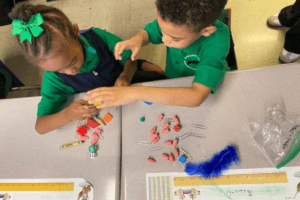CATEGORY: Teachers and Leaders
Amanda • Jan 26, 2021
We are thrilled to announce De-Lea Deane-Allen as AF’s first Chief Equity Officer.
Related Posts
CATEGORY: Leading for Racial Equity, Students, Teachers and Leaders

Exploring New Frontiers in Math: Alicia Lynch on the Context for Learning Mathematics Pilot Program
Nov 26, 2024
CATEGORY: Teachers and Leaders

Mental Health Awareness: A Q&A with AF Aspire Social Worker Liza
May 30, 2024



